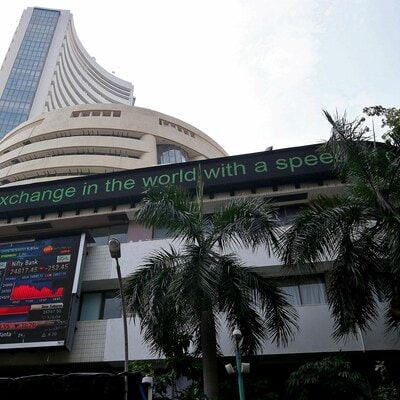The sharp rally on Monday had parallels with 2019. Reacting to exit polls, the benchmark S&P BSE Sensex had rallied 3.8 per cent on May 20, 2019. Back then, exit polls had indicated a second term for Prime Minister Narendra Modi, with forecasts for seats ranging between 287 and 306 for the Bharatiya Janata Party (BJP)-led National Democratic Alliance (NDA).
The NDA eventually exceeded forecasts by most pollsters, garnering 350-plus seats, with the BJP alone bagging 303 seats. However, after the actual results, the Sensex, rising as much as 2.6 per cent in intraday trade on May 23, 2019, settled 0.8 per cent lower on profit-taking.
This time around, the Sensex ended with a gain of 3.4 per cent ahead of the results, with exit polls hinting that the BJP would increase its 303-seat tally in the 543-member Lower House of Parliament.
It remains to be seen how the markets end on result day.
If the outcome is along predicted lines, experts say the current euphoria may continue for some more time until the focus shifts to valuations and earnings.
“A short market rally is on the cards on the day of the results, especially if final numbers align closely with those predicted by exit polls, given that the markets were a tad nervous about the final numbers… Traders and foreign portfolio investors (FPIs), who had trimmed their positions ahead of elections, would look to go long, bolstering markets during this week,” said a note by Elara Capital.
“A favourable outcome that suggests policy continuity should drive inflows from FPIs. The FPI flows have been negative since April. The FPI holding in India has declined to 15.6 per cent versus 19.8 per cent pre-pandemic. We think investors are concerned about the uncertainty related to the Indian general elections. Domestic flows have remained sticky. Any adverse changes in equity taxation are a risk for the market in the near term,” added a note by Nomura.
Experts say if the BJP’s seat tally falls below the 2019 level, it could disappoint the market and even trigger a selloff on worries that the government’s economic agenda may take a back seat.
However, political stability and policy continuity could usher India into a “golden phase”, believes Axis Securities.
“The Indian economy is in a sweet spot of growth and remains the land of stability against the backdrop of a volatile global economy. With this expectation of political stability and policy continuity, the prospects of the Indian economy appear notably brighter and more promising in the upcoming years. We further believe that policy continuity is a crucial element for continuing the current macro cycle,” it said.
Since 1999, the Sensex has seen an average swing — the difference between the day’s high and low — of 5 per cent on the day of the Lok Sabha election results.
In the past, they have predicted the general election outcome correctly but have failed to accurately predict the number of seats a party or an alliance has.

First Published: Jun 03 2024 | 10:17 PM IST
Note:- (Not all news on the site expresses the point of view of the site, but we transmit this news automatically and translate it through programmatic technology on the site and not from a human editor. The content is auto-generated from a syndicated feed.))



